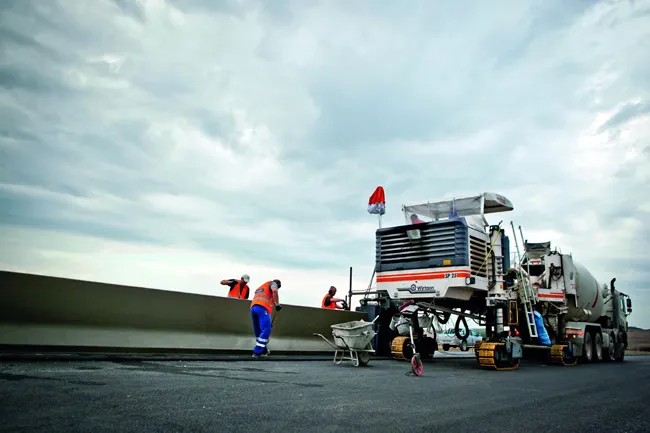A research consortium headed by Daimler AG has claimed a breakthrough in the wireless exchange of information among vehicles and between vehicles and the traffic infrastructure. Following three years of intensive research work, Daimler is presenting the current status of the Sim project in Germany together with the involved project partners. It is also announcing the launch of what it claims is the largest field trial for car-to-x communication worldwide: from the spring of 2012, around 120 vehicles will be
April 27, 2012
Read time: 2 mins
A research consortium headed by 3992 Daimler AG has claimed a breakthrough in the wireless exchange of information among vehicles and between vehicles and the traffic infrastructure.
Following three years of intensive research work, Daimler is presenting the current status of the Sim project in Germany together with the involved project partners. It is also announcing the launch of what it claims is the largest field trial for car-to-x communication worldwide: from the spring of 2012, around 120 vehicles will be testing the new technology in real road traffic in the Rhine-Main region.
"We are convinced that car-to-x communication represents an important step on the way to accident-free driving," observes Sim overall project coordinator Dr Christian Weiß, who heads the Cooperating Systems team in the Research and Advance Development department at Daimler AG.
The use of car-to-x systems extends the vehicle's field of vision – the telematic horizon – substantially. In addition to safety-related applications, comfort functions such as suggested routes to the nearest available car park can also be realised. By enabling traffic signal systems to be controlled according to prevailing requirements, car-to-x communication can also help to optimise traffic flows, thereby contributing to efficient and thus sustainable mobility.
In Germany, the Sim research project (Safe Intelligent Mobility – test field Germany) is examining the everyday practicality of car-to-x communication and involves German automobile manufacturers, automotive parts suppliers, communications companies, research institutes and the public sector. The project is being sponsored and supported by the Federal Ministries of Economics and Technology, Education and Research, Transport, Building and Urban Affairs and the Federal State of Hesse.
Following three years of intensive research work, Daimler is presenting the current status of the Sim project in Germany together with the involved project partners. It is also announcing the launch of what it claims is the largest field trial for car-to-x communication worldwide: from the spring of 2012, around 120 vehicles will be testing the new technology in real road traffic in the Rhine-Main region.
"We are convinced that car-to-x communication represents an important step on the way to accident-free driving," observes Sim overall project coordinator Dr Christian Weiß, who heads the Cooperating Systems team in the Research and Advance Development department at Daimler AG.
The use of car-to-x systems extends the vehicle's field of vision – the telematic horizon – substantially. In addition to safety-related applications, comfort functions such as suggested routes to the nearest available car park can also be realised. By enabling traffic signal systems to be controlled according to prevailing requirements, car-to-x communication can also help to optimise traffic flows, thereby contributing to efficient and thus sustainable mobility.
In Germany, the Sim research project (Safe Intelligent Mobility – test field Germany) is examining the everyday practicality of car-to-x communication and involves German automobile manufacturers, automotive parts suppliers, communications companies, research institutes and the public sector. The project is being sponsored and supported by the Federal Ministries of Economics and Technology, Education and Research, Transport, Building and Urban Affairs and the Federal State of Hesse.







